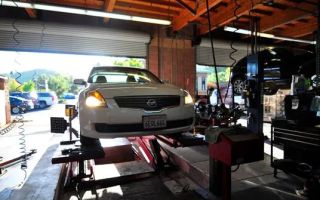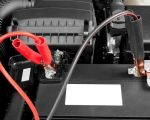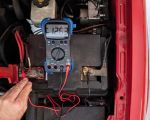How Do I Know When to Replace My Car's Alternator?
- Signs of a Failing Alternator
- Common Symptoms of Alternator Problems
- How to Test Your Alternator
- The Importance of a Functional Alternator
Signs of a Failing Alternator
As a car owner, knowing when to replace your alternator is crucial to avoid the frustration of an unexpected breakdown. I remember the first time my car’s alternator started to fail. I was driving on a long trip when I noticed the dashboard lights flickering, and the power steering felt heavier than usual. These subtle signs, which at first seemed unrelated, were actually telling me that my alternator was on its way out. Here's a rundown of common signs to look out for:
- Flickering or Dimmed Headlights: If your headlights suddenly start flickering or dimming, it's a clear sign that your alternator is struggling to supply enough power.
- Battery Warning Light: A battery light on your dashboard might appear, which usually indicates alternator failure or charging problems.
- Electrical Failures: Malfunctions with your car’s electronics, such as the radio or air conditioning, can point to a failing alternator.
Common Symptoms of Alternator Problems
If you start noticing that your car has trouble starting or the electrical systems are unreliable, these could be signs that your alternator is not functioning properly. Here's a deeper dive into some common symptoms:
- Car Struggles to Start: If your car has trouble starting, especially after it's been running for a while, it could be a sign the alternator is failing to charge the battery adequately.
- Dead Battery: One of the main roles of the alternator is to recharge your battery. A dead battery that needs frequent recharging or replacing may be linked to alternator failure.
- Unusual Noises: Strange noises, such as grinding or whining from under the hood, can indicate mechanical issues within the alternator, such as worn-out bearings.
How to Test Your Alternator
To determine if your alternator is truly at fault, you can perform a quick test. Here’s how you can check it:
- Visual Inspection: Start by inspecting the alternator’s belts and wiring. Look for loose or worn-out connections.
- Test the Battery Voltage: You can measure your car battery’s voltage using a multimeter. With the car off, it should read around 12.6 volts. If the car is running, it should be between 13.7 to 14.7 volts. If it’s lower than this, your alternator might not be charging the battery properly.
- Headlight Test: Start your car and rev the engine to about 2000 rpm. If your headlights brighten as you increase the RPM, this can indicate the alternator is working properly. If not, there might be a problem.
If you're still unsure, it’s always a good idea to take your car to a professional mechanic for a more thorough inspection.
The Importance of a Functional Alternator
Understanding why the alternator is essential for your car's performance is crucial. The alternator plays a key role in powering your vehicle’s electrical systems while keeping your battery charged. Without a working alternator, your car won’t run smoothly and may break down unexpectedly. A failing alternator can lead to:
- Power loss to crucial components like the ignition and air conditioning.
- Overworking the battery, which can cause it to fail prematurely.
- Complete loss of power, which can lead to a total breakdown while driving.
If you experience any of the symptoms mentioned above, it’s important to address the problem promptly. A functioning alternator is key to keeping your car running safely and efficiently.
In case your car breaks down due to alternator failure, or if you need roadside assistance for any other emergency, don’t hesitate to contact professional towing services. Rescue & Towing offers prompt and reliable towing services, ensuring that your vehicle gets the necessary attention it needs to get back on the road.



























